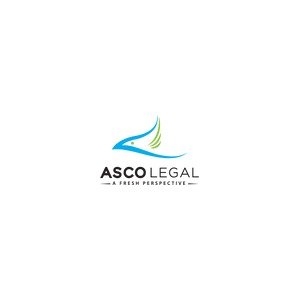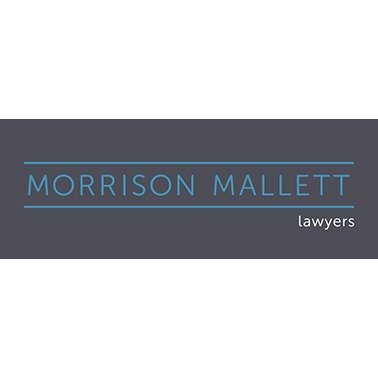Best Water Law Lawyers in Auckland
Share your needs with us, get contacted by law firms.
Free. Takes 2 min.
List of the best lawyers in Auckland, New Zealand
About Water Law in Auckland, New Zealand
Water Law in Auckland, New Zealand, relates to the rights, usage, allocation, and management of water resources including rivers, lakes, groundwater, and coastal areas. This field of law addresses how individuals, businesses, iwi (Māori tribes), and governmental bodies interact with water resources under various statutes and regulations. Water Law also encompasses environmental management and protection, urban development issues, resource consent processes, and disputes involving water pollution or usage.
In Auckland, Water Law is shaped by national legislation such as the Resource Management Act 1991 (RMA), the Local Government Act 2002, and various regional and district plans. The overall aim is to balance sustainable water use, cultural values, environmental protection, the rights of landowners and users, and community needs.
Why You May Need a Lawyer
Many individuals and businesses find themselves needing legal advice in the realm of Water Law. Common situations include:
- Applying for or opposing a resource consent to take or use water
- Addressing water pollution or contamination claims
- Disputes over water rights between neighbours, companies, or with government agencies
- Māori customary rights or interests regarding freshwater and coastal waters
- Compliance with regulations relating to urban development near waterways
- Dealing with stormwater management and drainage disputes
- Responding to council enforcement action for alleged breaches of water use legislation
- Negotiating with Auckland Council or Watercare Services Limited regarding access or use of water infrastructure
A lawyer familiar with Water Law in Auckland can help protect your interests, guide you through complex legal requirements, and represent you in negotiations or hearings.
Local Laws Overview
The legal framework for Water Law in Auckland is primarily governed by national and regional legislation, as well as Māori customary law:
- Resource Management Act 1991 (RMA): The cornerstone of environmental law in New Zealand. The RMA controls how water resources are managed, used, and protected, requiring resource consents for activities that may affect water bodies.
- Local Government Act 2002: Governs how local councils, including Auckland Council, manage infrastructure and community water services.
- National Policy Statement for Freshwater Management: Sets out national objectives and policies for freshwater management that Auckland Council must implement locally.
- Auckland Unitary Plan: The main planning document that integrates regional and district planning rules, including specific regulations for water quality, allocation, stormwater, and land use adjacent to water bodies.
- Māori Interests: The Treaty of Waitangi, iwi settlements, and Māori customary rights are increasingly recognised and can affect how water resources are allocated and managed within Auckland.
- Watercare Services Limited: Manages Auckland’s drinking water, wastewater, and part of the stormwater network. Users must comply with company bylaws and contracts.
Practical application of these laws involves applying for resource consents, ensuring compliance with water restrictions, navigating disputes, and following the administrative procedures set by the council or relevant agencies.
Frequently Asked Questions
What is a resource consent and when do I need one?
A resource consent is a legal permission from Auckland Council (or another authority) to carry out activities that may affect water resources, such as taking water from a stream, discharging contaminants, or altering a waterway. You will need one whenever your intended use is not permitted as of right under the Auckland Unitary Plan or relevant regulation.
Can my neighbour divert water onto my property?
No one has the automatic right to alter water flows in a way that causes damage or nuisance to neighbouring properties. If you face such a situation, you may have a legal case for nuisance, trespass, or breach of planning rules.
What should I do if I discover water pollution or contamination?
Report the incident to Auckland Council promptly. It may be necessary to involve environmental or health regulators. If you are affected, seek legal advice regarding possible claims or remedies.
How are Māori rights considered in water management?
Māori interests, values, and customary rights are increasingly acknowledged in Water Law through Treaty of Waitangi obligations, iwi management plans, and participation in decision-making processes. Specific rights may vary depending on the context.
Who is responsible for stormwater in Auckland?
Stormwater infrastructure and management are primarily the responsibility of Auckland Council and Watercare Services Limited. However, property owners have duties to manage stormwater on their own properties in compliance with local bylaws.
Can I use water from a stream on my rural property?
You may need a resource consent, depending on the amount and use of the water. Certain permitted activities are allowed, but larger extractions or damming usually require council approval.
How do I object to a resource consent application affecting my property?
You can make a submission to Auckland Council during the public notification period. If you are adversely affected, you may also be entitled to a hearing or appeal council decisions.
What are the penalties for breaching Water Law regulations?
Penalties range from infringement notices and fines to prosecution for serious breaches, which can result in substantial fines or court orders to remediate damage.
How long does it take to get a water-related resource consent?
Timelines vary based on complexity. Straightforward applications may take a few weeks, while more significant or publicly notified consents can take several months or longer.
Where can I find guidance on compliance with water regulations?
Auckland Council provides information through its website and offices. You can also seek help from a lawyer or water management consultant for complex issues or compliance concerns.
Additional Resources
If you require more information or support on Water Law issues in Auckland, consider the following resources:
- Auckland Council: For resource consent applications, local plans, and regulatory advice
- Watercare Services Limited: For information on water and wastewater services
- Ministry for the Environment: For details on national water laws and policy statements
- Te Kahui Wai Māori: Advisory group on Māori issues in freshwater management
- Community Law Centres: Community-based legal advice, sometimes covering environmental and property issues
- Environmental Defence Society: Non-profit environmental advocacy and advice
- Resource Management Law Association of New Zealand: For specialised practitioner networks
Next Steps
If you believe you need legal advice regarding a Water Law issue in Auckland:
- Gather all relevant information about your situation, including property documents, correspondence from authorities, and any notices received
- Contact a lawyer with expertise in environmental or resource management law, preferably with experience in Auckland’s local context
- Consider using Auckland Council’s information services or consulting water management professionals for initial guidance
- If urgent regulatory action is involved, act promptly to avoid penalties or enforcement
- For disputes, try to resolve issues amicably but seek legal help if resolution is not reached or if your rights are threatened
- Attend community consultation meetings or council hearings if your issue involves public processes or has wider community impact
Navigating Water Law can be complex, but early expert advice can help protect your rights, ensure compliance, and achieve the best outcome.
Lawzana helps you find the best lawyers and law firms in Auckland through a curated and pre-screened list of qualified legal professionals. Our platform offers rankings and detailed profiles of attorneys and law firms, allowing you to compare based on practice areas, including Water Law, experience, and client feedback.
Each profile includes a description of the firm's areas of practice, client reviews, team members and partners, year of establishment, spoken languages, office locations, contact information, social media presence, and any published articles or resources. Most firms on our platform speak English and are experienced in both local and international legal matters.
Get a quote from top-rated law firms in Auckland, New Zealand — quickly, securely, and without unnecessary hassle.
Disclaimer:
The information provided on this page is for general informational purposes only and does not constitute legal advice. While we strive to ensure the accuracy and relevance of the content, legal information may change over time, and interpretations of the law can vary. You should always consult with a qualified legal professional for advice specific to your situation.
We disclaim all liability for actions taken or not taken based on the content of this page. If you believe any information is incorrect or outdated, please contact us, and we will review and update it where appropriate.

















